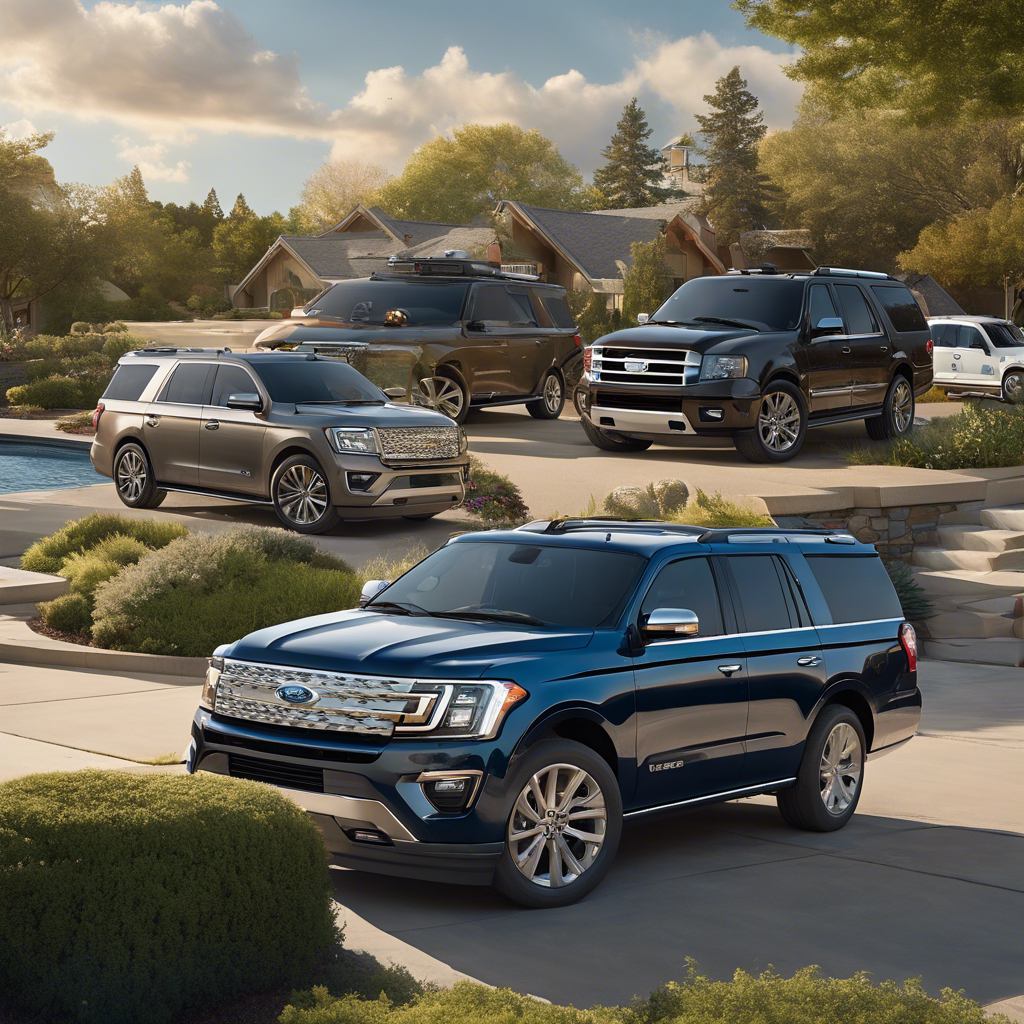The full-size SUV market is crowded with impressive contenders, but few stand out as clearly as the Ford Expedition. This article delves into the strengths and weaknesses of the Ford Expedition vs competitors, showcasing why this American powerhouse remains a popular choice for families and adventurers alike. Alongside this analysis, we will explore what factors set the Expedition apart from its competitors, such as the Chevrolet Tahoe, GMC Yukon, and the Toyota Sequoia.
Performance and Power: Ford Expedition vs Competitors
When considering performance in the realm of full-size SUVs, the Ford Expedition vs competitors debate takes center stage. The Ford Expedition offers a robust 3.5-liter EcoBoost V6 engine, producing up to 375 horsepower, or 400 horsepower in higher trims, paired with a 10-speed automatic transmission. This powertrain delivers impressive acceleration, towing capabilities, and overall performance suitable for both urban and off-road adventures.
Meanwhile, competitors like the Chevrolet Tahoe and GMC Yukon boast larger V8 engines with a slightly higher maximum horsepower, but they often fall short in fuel efficiency compared to the turbocharged Expedition. The Toyota Sequoia, on the other hand, houses a 5.7-liter V8 engine, which is powerful but lacks the modern efficiency and power balance that the Expedition offers.
Interior and Comfort: A Spacious Debate
Interior space and comfort often tip the scales for buyers examining the Ford Expedition vs competitors. The Ford Expedition’s interior is designed with family comfort in mind, boasting three rows of seating with ample legroom and head space throughout. With features like a sliding second row and reclining third-row seats, the Expedition makes it easy to tailor space for passenger comfort or cargo capacity.
- Expedition: Seats up to 8, spacious third row
- Tahoe: Improved third-row legroom, but less than Expedition
- Yukon: Similar dimensions to Tahoe, stylish interiors
- Sequoia: Large cabin, but dated interior compared to rivals
Among the competition, the Chevrolet Tahoe and GMC Yukon have modernized their interiors, featuring high-quality materials and refreshed designs. However, the Expedition often wins thanks to its larger interior space and smart use of that space. The Toyota Sequoia, while spacious, often feels less refined, suffering from an outdated design and inferior material quality.
Technology and Features: Taking a Look Inside
In the world of large SUVs, technology plays a crucial role in the Ford Expedition vs competitors comparison. The Expedition comes equipped with the latest Ford SYNC infotainment system, offering seamless smartphone integration through Apple CarPlay and Android Auto. The Expedition also boasts a range of driver-assistance features such as adaptive cruise control, lane-keeping assist, and pre-collision assist with automatic emergency braking.
When measuring technology, the Chevrolet Tahoe and GMC Yukon are worthy opponents, each offering similar levels of connectivity and safety technology. However, the Ford Expedition frequently takes the lead in terms of overall user-friendliness and integration. The Toyota Sequoia, though reliable, struggles to maintain technological relevancy against its newer rivals.
Pricing and Value: A Cost Comparison
When considering pricing, buyers must weigh the mission-critical value in Ford Expedition vs competitors discussions. The Ford Expedition starts at a competitive base price, often attracting customers with its balance of features and performance. Its higher trims offer luxury-level amenities, still priced more affordably than similarly equipped competitors.
- Expedition: Strong initial value, luxury at higher trims
- Tahoe: Recent redesign, competitive pricing
- Yukon: Slightly higher base price, premium features
- Sequoia: Competitively priced, but lacks modern updates
The Chevrolet Tahoe and GMC Yukon provide strong arguments for value, especially with their redesigned interiors and robust engine options. However, their base models begin at a slightly higher price point than the Expedition. The Toyota Sequoia remains competitively priced, yet its lack of modern upgrades affects its perceived value.
Final Verdict: Why the Ford Expedition Rules
In conclusion, the Ford Expedition vs competitors debate ultimately highlights Ford’s adeptness at creating a versatile, high-performing, and tech-savvy SUV. The Expedition stands out with its combination of power, space, and technology at a price point that provides exceptional value for money.
While the Chevrolet Tahoe and GMC Yukon present appealing alternatives, especially with recent updates, the Ford Expedition continues to excel in interior space and practicality. The Toyota Sequoia, while inherently reliable, lacks the contemporary updates to fully compete in today’s market.
For buyers prioritizing safety, it is worth noting that Ford Expedition safety ratings consistently demonstrate strength and reliability, adding an extra layer of peace of mind for family-oriented buyers.
As you navigate the world of full-size SUVs, the Ford Expedition’s blend of performance, comfort, and technological prowess makes it a formidable choice, keeping it ahead of its competitors for those who seek both adventure and family-friendly utility.

